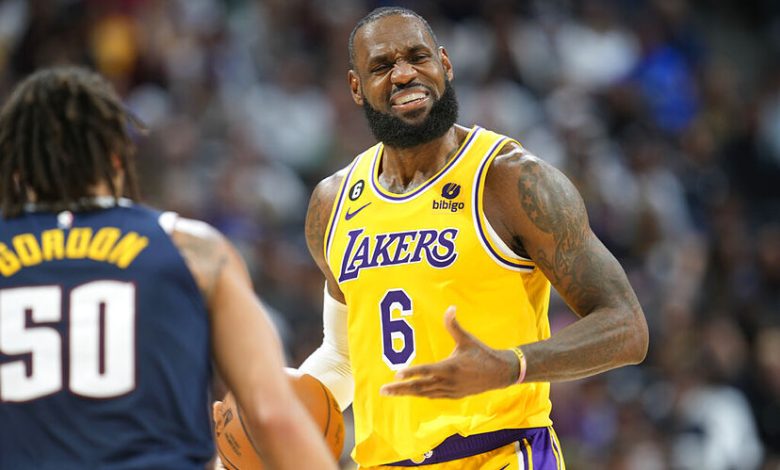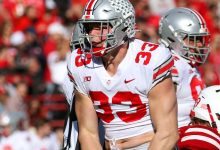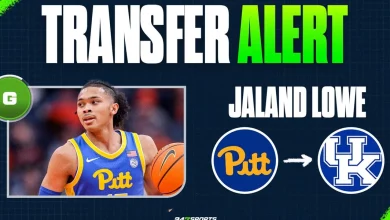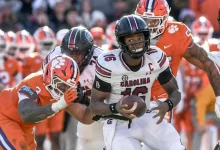Los Angeles Lakers owner is close to selling the team to the head of Guggenheim Partners, with negotiations progressing toward a potential sale agreement.

Los Angeles Lakers owner is close to selling the team to the head of Guggenheim Partners, with negotiations progressing toward a potential sale agreement.
The Los Angeles Lakers, one of the most storied franchises in NBA history, are at a pivotal moment as reports suggest that their current owner is nearing a sale of the team to the head of Guggenheim Partners. This development has garnered widespread attention among sports fans, investors, and industry insiders, given the franchise’s prominence and cultural significance.
This comprehensive analysis explores the background of the Lakers’ ownership, the context of the potential sale, the profile of Guggenheim Partners and its leadership, the strategic implications of such a transaction, and what it could mean for the franchise’s future. We will also examine the broader landscape of sports ownership, possible motivations behind the sale, and the potential impact on stakeholders.
Background of the Los Angeles Lakers Ownership
The Lakers’ Ownership History
Founded in 1947, the Los Angeles Lakers have a rich history marked by legendary players, multiple championships, and a global fan base. Over the decades, the franchise has been owned by various individuals and entities, each shaping its direction and legacy.
- Dr. Jerry Buss (1979–2013): The most iconic owner in Lakers history, Buss transformed the franchise into a national powerhouse, securing 10 NBA championships during his tenure and elevating the Lakers’ brand to global prominence. His leadership emphasized star power, entertainment, and excellence.
- Jeanie Buss (2013–present): Following her father’s passing, Jeanie Buss assumed ownership and leadership roles within the organization. Under her stewardship, the Lakers have experienced both success and challenges, including acquiring superstar talent and navigating complex team dynamics.
The Current Ownership Structure
Jeanie Buss, as controlling owner, manages a significant stake in the franchise, although the structure includes other investors and partners. The Lakers are valued at several billion dollars, reflecting their lucrative media rights, merchandising, and global appeal.
Motivations for a Potential Sale
While the Lakers remain a valuable asset, various factors may motivate a sale:
- Financial Considerations: The high valuation and potential for profitable exit strategies.
- Market Dynamics: Changes in the sports industry, including media rights and franchise valuations.
- Personal Decisions: Jeanie Buss’s desire to step back or pursue other interests.
- Strategic Restructuring: Attracting new investment to fund future successes.
The Context of the Sale Negotiation
The Reports and Timing
Recent reports indicate that the Lakers’ owner is nearing a sale agreement with the head of Guggenheim Partners. While details remain confidential, the negotiations appear advanced, with sources suggesting that both parties are in serious discussions.
The timing is significant, as the NBA and sports industry are experiencing transformative shifts—new media deals, increased franchise valuations, and evolving fan engagement models—all influencing ownership decisions.
The Significance for the Lakers
A change in ownership could have profound implications:
- Financial Capital: New ownership might inject substantial investment into the franchise.
- Strategic Direction: Shift in team management philosophy, branding, and operational priorities.
- Market Positioning: Rebranding or repositioning the Lakers within the NBA and global sports landscape.
Broader Industry Trends
The sports franchise market has seen a surge in valuations, with prominent teams changing hands or preparing for sale. High-profile deals, such as the sale of the Denver Broncos or the Phoenix Suns, reflect a broader trend of sports as a lucrative investment class.
Who Is Guggenheim Partners and Its Leadership?
Overview of Guggenheim Partners
Guggenheim Partners is a global investment and advisory firm founded in 1999, with headquarters in New York City and Chicago. It manages assets across various classes, including fixed income, equities, real estate, and alternative investments. The firm is known for its strategic advisory services and substantial influence in financial markets.
Leadership Profile: The Head of Guggenheim Partners
The specific individual linked to the Lakers’ potential sale is believed to be the firm’s chief executive or a prominent executive within the organization. While the exact name may be confidential or speculative, the leadership of Guggenheim Partners has a reputation for:
- Financial Acumen: Expertise in managing complex investments and large asset portfolios.
- Strategic Vision: A focus on long-term value creation and innovative investment approaches.
- Business Networking: Extensive connections across industries, including sports, entertainment, and finance.
The Firm’s Involvement in Sports and Entertainment
Although primarily a financial institution, Guggenheim Partners has shown interest in sports and entertainment sectors, investing in or advising on high-profile deals. Their involvement in the Los Angeles Lakers would represent a significant expansion into sports ownership, aligning with their broader strategic goals.
Potential Motivations for Guggenheim Partners’ Interest
Strategic Investment Opportunity
Owning a franchise like the Lakers offers a prestigious and potentially lucrative asset. The franchise’s value, global brand, and revenue streams from media rights, merchandise, and ticket sales make it an attractive investment.
Diversification and Portfolio Expansion
Guggenheim Partners may seek to diversify its portfolio by entering the sports ownership space, leveraging its financial expertise to maximize the franchise’s value.
Synergies with Existing Investments
The firm’s existing investments in media, entertainment, or real estate could align well with owning a high-profile NBA team, creating cross-promotional or investment synergies.
Long-Term Growth and Branding
Ownership of the Lakers could serve as a platform to expand Guggenheim’s influence within the sports industry, opening doors to other deals and strategic partnerships.
Implications of the Sale for the Lakers and Stakeholders
Impact on the Franchise
- Operational Changes: New ownership might overhaul management, coaching, or player personnel strategies.
- Branding and Marketing: Potential rebranding efforts or global marketing initiatives to expand the Lakers’ reach.
- Investment in Facilities and Infrastructure: Upgrades to the Staples Center or development of new venues.
Financial Benefits
A well-funded ownership group could invest heavily in team talent, technology, and fan engagement, positioning the Lakers for sustained success.
Fan and Community Reactions
The Lakers’ fanbase is passionate and deeply connected to the franchise’s legacy. A new owner, especially from a financial background, might evoke mixed reactions—excitement for growth but concern over losing the franchise’s cultural identity.
NBA and League-Wide Effects
The NBA’s reputation and marketability could be enhanced with a high-profile, financially robust owner, attracting further investment and global viewership.
Challenges and Risks of the Sale
Regulatory and League Approval
Ownership transfers require approval from the NBA’s Board of Governors, ensuring that the new owners meet league standards regarding financial stability, reputation, and fit.
Potential Disruptions
Transition periods can create instability within the organization, affecting team chemistry, management, and strategic planning.
Financial Risks
While owning the Lakers is lucrative, it also involves substantial financial commitments, debt considerations, and market fluctuations.
Cultural and Identity Concerns
Maintaining the Lakers’ legacy and identity amid new ownership is essential to satisfy fans and preserve the franchise’s storied history.
Future Outlook and Next Steps
Due Diligence and Negotiations
The negotiations are likely in advanced stages, involving valuation assessments, legal considerations, and contractual negotiations.
Public Announcements and Transparency
Once a deal is finalized, the NBA and the parties involved will likely make formal announcements, with details about ownership structure, future plans, and strategic vision.
Transition Planning
A smooth transition will involve integrating new leadership, establishing operational priorities, and engaging with stakeholders—fans, players, sponsors, and community members.
Long-Term Vision
The new ownership, led by the head of Guggenheim Partners, could focus on elevating the Lakers’ global brand, expanding media rights, and investing in player development and team success.
Broader Industry Implications
Valuation Trends
The potential sale underscores the escalating valuation of sports franchises, driven by media rights deals, international markets, and fan engagement innovations.
Investment in Sports as an Asset Class
The deal reflects a growing trend of sophisticated financial firms entering sports ownership, viewing teams as long-term growth assets.
Influence on Other Franchise Sales
High-profile sales like this can influence valuations and sale processes for other NBA teams and sports franchises, setting new benchmarks.
A Landmark Moment for the Lakers and Sports Ownership
The nearing sale of the Los Angeles Lakers to the head of Guggenheim Partners symbolizes a significant shift in sports franchise ownership. With the Lakers’ storied legacy and global appeal, such a move could usher in a new era of strategic investment, innovative branding, and competitive success.
While details remain confidential, the implications are profound—potentially transforming the franchise’s operational philosophy, financial strength, and positioning within the NBA and broader sports industry. As negotiations progress, stakeholders will watch closely, anticipating whether this deal will solidify the Lakers’ status as a premier global sports entity under new ownership.
In the ever-evolving landscape of sports business, this development exemplifies how financial expertise and strategic vision can converge to shape the future of beloved franchises and redefine the intersection of sports, entertainment, and finance.









